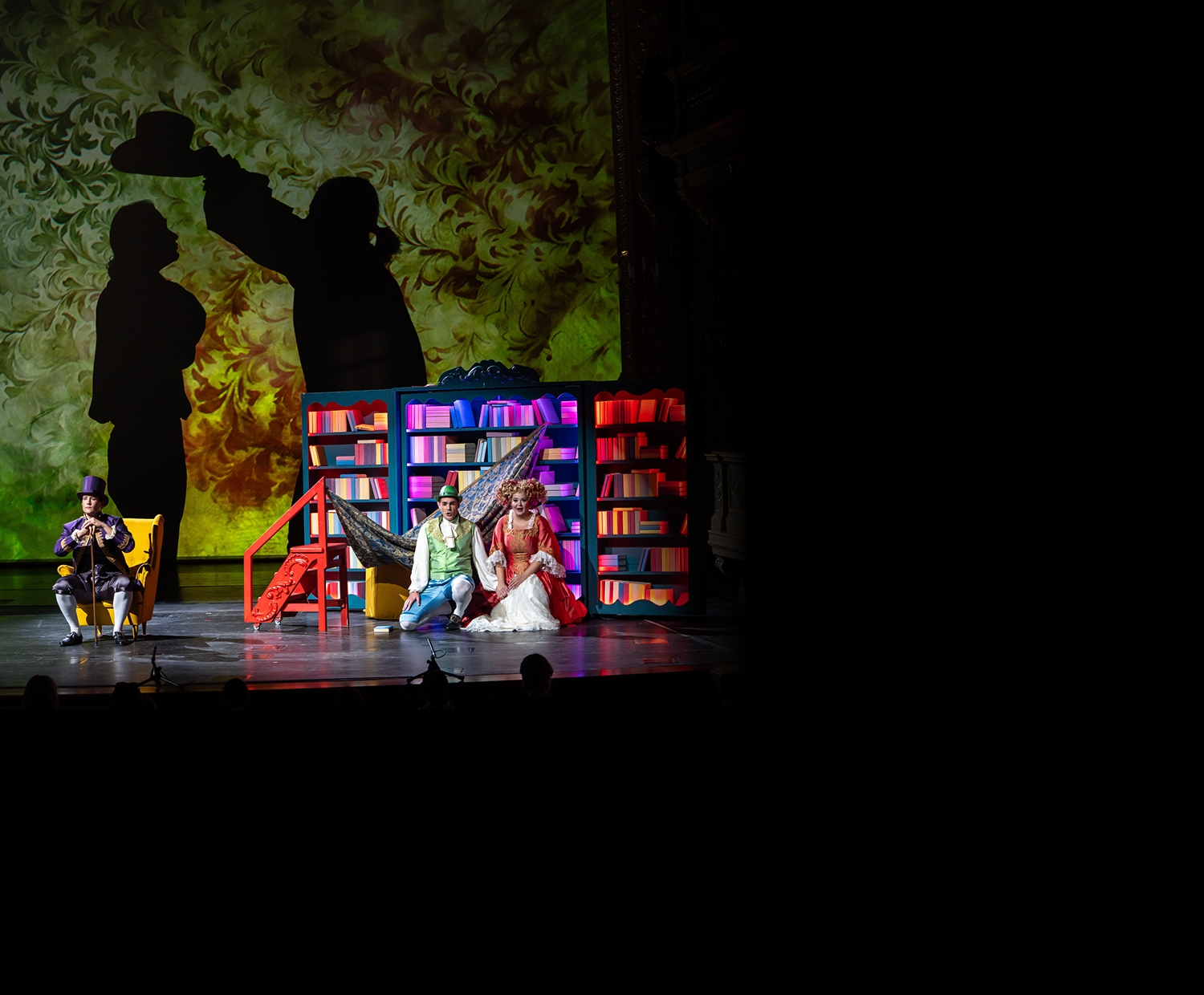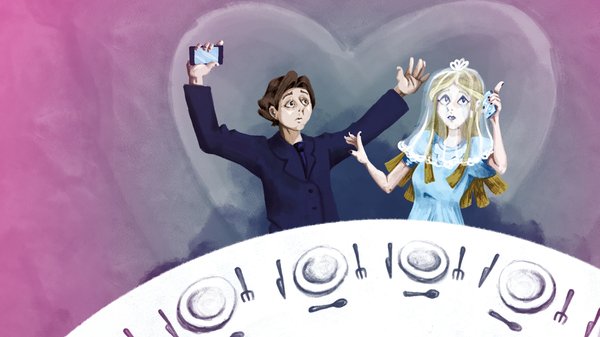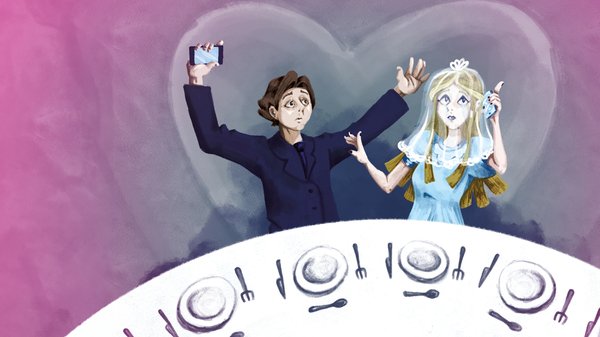
Bastien und Bastienne / The Telephone
MVM Piccolo Programme
Details
In Brief
Wolfgang Amadeus Mozart was barely 12 years old when he composed his bucolic little opera Bastien and Bastienne, which was performed at an “alternative venue”, the garden of a certain Doctor Mesmer. This is the very same Mesmer whose magnetic invention Mozart later alluded to with such comic effect toward the end of his operatic career, in Così fan tutte. As a counterpart to this charming love story, the evening also presents Gian Carlo Menotti’s 1947 one-act opera, which at its premiere was a delightful jest. Today, however, it stands as a tragicomic diagnosis of our times: mobile communication has rewritten our world and added new layers of meaning to the work. Andrea Valkai’s staging (in the case of The Telephone, adapted from András Almási-Tóth’s original production) has been placed in an alternative venue: on the proscenium of the auditorium of the Opera House, that is, on a raised platform above the orchestra pit, beneath Károly Lotz’s famous ceiling fresco.
Parental guidance
Events
Premiere: Sept. 7, 2024
Bastien und Bastienne
Wolfgang Amadeus Mozart was barely 12 years old when he composed his bucolic little opera, Bastien et Bastienne, which was performed at an “alternative location”, in the garden of a certain Doctor Mesmer whose studies of magnetism are referred to with such comical effect towards the end of Mozart's career as an opera composer, namely, in Così fan tutte. According to the sources, the young Wolfgang wrote Colas's wizard aria in gibberish himself (“Diggi, daggi, schurri, murri...”), and in the overture we can discover a real curiosity: the main theme is practically the same main theme in the first movement of Beethoven's Eroica composed much later. Bastien is presented to young audiences as a love story with a bit of magic...
The Telephone
When it premiered in 1947, Menotti’s one-act opera was a funny jab at the modern world. But today it is a tragicomic view of a symptom of our modern world: mobile communication has redefined our world and has given new meaning to the piece. Our production places the story in the business of a modern big city and tells the story of not just two people, but the generation that lives its life over the phone, in emails, and on social media platforms while slowly forgetting to look into other people’s eyes. Chamber opera with contemporary physical theatrical elements and (maybe) a happy end. András Almási-Tóth’s production was adapted for the auditorium of the Opera House by Andrea Valkai.

